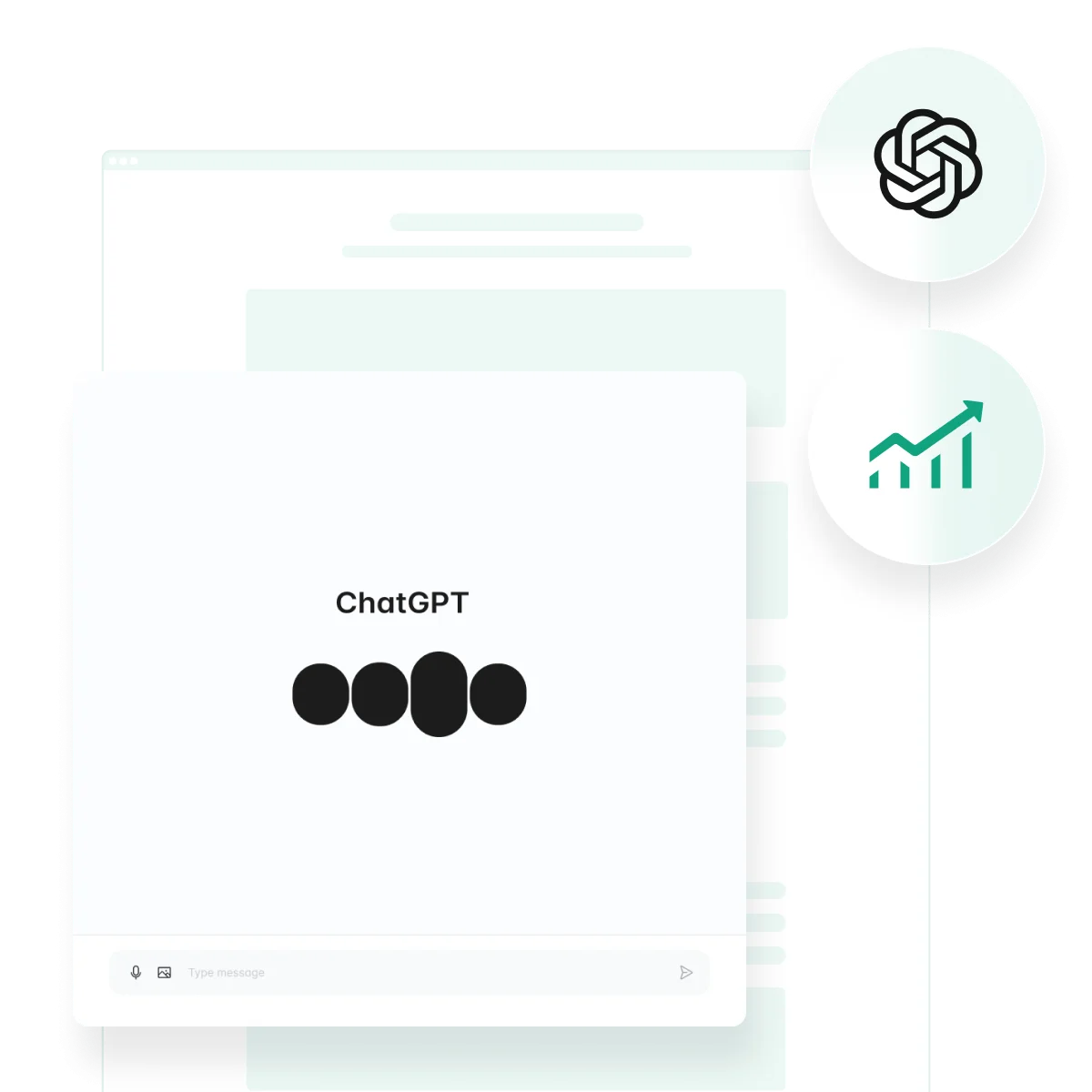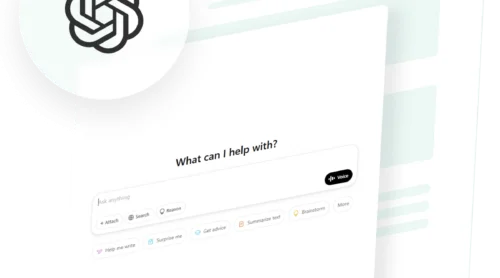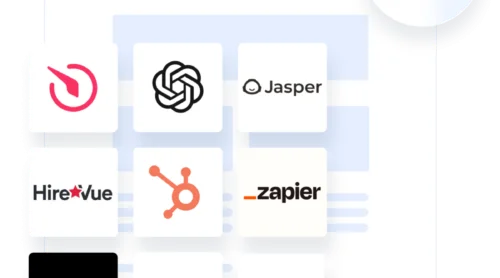Ecommerce is more competitive than ever, with businesses constantly seeking new ways to attract, engage, and retain customers. While technology has always played a role in online retail, AI-driven tools like ChatGPT are now enabling brands to automate tasks, enhance customer interactions, and personalize shopping experiences at scale.
From answering inquiries to generating product descriptions, ChatGPT offers a practical and efficient way to optimize operations. By integrating AI-powered solutions, ecommerce businesses can improve responsiveness, boost conversions, and create a more seamless shopping journey.
Approaches to Implementing ChatGPT in Ecommerce
Integrating ChatGPT into an e-commerce platform can be done in different ways, depending on the level of customization and control a business requires. Here are the key approaches:
ChatGPT-Powered Apps & No-Code Solutions
For businesses looking for a quick and easy way to integrate AI, a pre-built ChatGPT-powered chatbot can be a great option. It can be embedded into platforms like Shopify, WooCommerce, BigCommerce, and others. This tool requires little to no technical expertise and can be installed as a plugin, enabling instant chatbot functionality for customer support, order tracking, and basic FAQs.
| Pros | Cons |
|---|---|
| ✔️ Fast deployment with minimal setup | ❌ Limited customization options |
| ✔️ Affordable for small and medium businesses | ❌ Might not integrate seamlessly with all business processes |
| ✔️ No coding skills required |
Create an AI-powered chatbot with Elfsight and start enhancing your customer interactions today! Whether you’re new to chatbots or an experienced user, Elfsight’s easy setup and customizable features help you create a tailored solution in no time.
Don’t miss out on improving engagement — give it a try now!
API Integration for Custom ChatGPT Solutions
For businesses that need more control over their chatbot’s behavior, integrating OpenAI’s API allows for a more tailored approach. This method enables businesses to connect ChatGPT with their CRM, customer service platform, or even integrate it with voice assistants. API integration can also be used to generate personalized product recommendations, automate email responses, and enhance customer interactions at scale.
| Pros | Cons |
|---|---|
| ✔️ Fully customizable responses and workflows | ❌ Requires development expertise |
| ✔️ Can be integrated into multiple touchpoints (chatbots, email, voice, etc.) | ❌ Higher costs for API usage at scale |
| ✔️ Better data control and insights |
AI-Powered Chatbot Platforms
For businesses that want a balance between ease of use and customization, third-party AI chatbot builder platforms offer ChatGPT-powered chatbot services. These platforms provide an intuitive interface for building automated chatbots that handle customer queries, upselling, and order management.
| Pros | Cons |
|---|---|
| ✔️ More customization compared to basic plugins | ❌ Subscription-based pricing may be costly over time |
| ✔️ Comes with built-in analytics and customer insights | ❌ Less control over AI training and data privacy |
| ✔️ Can support multiple communication channels (web, social media, WhatsApp) |
In-House AI Development for Maximum Customization
Large enterprises or tech-savvy businesses may opt to build their own AI chatbot solutions using ChatGPT and other AI frameworks. This approach provides complete control over chatbot behavior, data security, and branding, making it ideal for companies with strict compliance requirements or unique customer engagement strategies.
| Pros | Cons |
|---|---|
| ✔️ Maximum flexibility and control | ❌ Requires significant investment in AI development |
| ✔️ Custom-built AI model tailored to business needs | ❌ Ongoing maintenance and updates needed |
| ✔️ Can integrate with proprietary business tools and databases |
Choosing the Right Approach
The ideal ChatGPT implementation depends on the size and complexity of the business. Small businesses might benefit from plug-and-play chatbot apps, while medium to large enterprises may find API integration or custom-built AI solutions more effective in delivering a seamless, personalized customer experience.
Examples of Ecommerce ChatGPT Solutions
ChatGPT can enhance various aspects of ecommerce, from customer service to marketing and SEO. Here’s how businesses can leverage AI-powered solutions.
🤖 Chatbots for Customer Support
ChatGPT can be used in customer service to provide instant responses to client inquiries, reducing the need for human agents. AI-based chatbots can handle common queries related to order tracking, return policies, and product details, ensuring a seamless customer experience.
Unlike traditional scripted bots, ChatGPT-powered assistants can understand context and provide more relevant, natural responses. They can also escalate complex issues to human representatives when needed. By integrating chatbots into websites, mobile apps, and social media platforms, businesses ensure 24/7 customer support, improving customer satisfaction and retention.
🛍 AI-Driven Product Recommendations
ChatGPT can analyze customer behavior, browsing history, and purchase patterns to generate highly personalized product recommendations. Instead of relying solely on static algorithms, ChatGPT can engage users in conversation, asking about their preferences and providing tailored suggestions in real time.
Personalized recommendations can be implemented through chatbots, email campaigns, or in-app messaging, ultimately leading to increased conversion rates and higher average order values. This approach creates a more dynamic and engaging shopping experience, helping customers discover relevant products effortlessly.
✍ Personalized Marketing Content Generation
ChatGPT can be used as an AI-powered marketing tool to automate the creation of engaging and relevant content, saving businesses time and effort while maintaining quality. It can generate compelling email subject lines, ad copy, product descriptions, and blog content tailored to different audience segments. By analyzing customer preferences and behavior, ChatGPT can craft personalized messages that resonate with specific demographics.
Additionally, it helps A/B test different variations of content to optimize engagement rates. With AI-generated marketing materials, businesses can maintain a consistent brand voice while scaling their marketing efforts efficiently.
🌏 Multilingual Customer Support
One of the biggest challenges in ecommerce is supporting customers across different regions and languages. ChatGPT can bridge this gap by providing real-time translation and assisting customers in multiple languages without the need for multilingual agents. This allows businesses to expand globally while offering localized customer support.
AI-powered multilingual chatbots can automatically detect a customer’s language and respond accordingly, ensuring a smooth and natural conversation. This approach helps ecommerce brands reach international audiences, reduce language barriers, and improve customer satisfaction across various markets.
⭐ Review & Feedback Analysis
Customer reviews and feedback are valuable sources of insights, but manually analyzing them can be time-consuming. ChatGPT can scan and summarize customer reviews, highlighting common sentiments, recurring issues, and emerging trends. Businesses can use this AI-driven analysis to identify product strengths and weaknesses, address customer concerns proactively, and improve their offerings.
ChatGPT can also automate responses to reviews, thanking customers for positive feedback or addressing complaints in a professional and personalized manner. This improves brand reputation and shows customers that their feedback is valued.
🚀 SEO Optimization
For ecommerce businesses looking to increase organic traffic, ChatGPT can assist in SEO-focused content creation. It can generate keyword-rich product descriptions, blog posts, and meta tags to improve search engine rankings. Additionally, it can help with content structuring and internal linking suggestions, ensuring that product pages and blog posts are optimized for discoverability.
ChatGPT is also capable of analysing trending topics and suggesting relevant content ideas that align with search demand, helping businesses attract more visitors and potential buyers. This AI-driven approach to SEO saves time and enhances a website’s visibility without requiring extensive manual effort.
Benefits of ChatGPT for Ecommerce
ChatGPT offers several powerful advantages for ecommerce businesses, from enhancing customer service to increasing sales and improving personalization. Here’s an expanded look at its benefits:
- Improved customer service. ChatGPT provides around-the-clock support, ensuring that customers receive immediate responses to queries, enhancing satisfaction and reducing wait times.
- Increased sales. With AI-driven product recommendations based on customer behavior, ChatGPT boosts conversion rates by suggesting items customers are more likely to buy, driving higher sales.
- Enhanced personalization. ChatGPT personalizes interactions by offering tailored product suggestions and content, which strengthens customer relationships and encourages repeat visits.
- Cost efficiency. By automating routine customer interactions, such as FAQs and basic troubleshooting, ChatGPT helps businesses reduce labor costs and allocate resources more effectively.
- Scalability. As demand grows, ChatGPT can handle an increased volume of customer inquiries without adding extra staff, ensuring consistent support and improving operational efficiency.
- Improved customer insights. Through data analysis of customer interactions, ChatGPT provides valuable insights that businesses can use to refine marketing strategies and enhance product offerings.
These expanded benefits show that ChatGPT not only streamlines operations but also enables e-commerce businesses to offer a more personalized, efficient, and scalable experience, ultimately driving growth and improving customer loyalty.
Challenges and Solutions
While integrating ChatGPT into e-commerce can offer many advantages, there are several challenges that businesses may face. Here’s a look at these potential hurdles and their solutions:
1. Data Privacy Concerns
Since ChatGPT processes large volumes of customer data, businesses must ensure that user information is protected. Customers may be concerned about how their data is handled, particularly with the growing importance of data privacy regulations like GDPR.
2. Technical Integration Difficulties
Integrating ChatGPT into existing ecommerce systems can be challenging for businesses that lack technical expertise. Compatibility issues may arise when connecting the AI model with customer service platforms, CRMs, or website interfaces.
3. Managing AI Limitations
While ChatGPT is a powerful tool, it may not always be able to understand context or handle complex, nuanced queries. There’s also a possibility of providing incorrect or imprecise information, which could lead to customer frustration.
4. Cost of API Usage
The use of ChatGPT’s API can become costly, especially as the volume of customer interactions increases. Small businesses, in particular, may find it challenging to manage the expenses associated with heavy usage.
5. Bias in AI Responses
Like all AI systems, ChatGPT can occasionally produce biased or inappropriate responses, especially when trained on large datasets that may reflect societal biases. This can undermine the trust that customers place in the service.
6. Maintaining Brand Voice
Ensuring ChatGPT maintains a consistent tone and aligns with the brand’s identity can be difficult, especially when the AI is responsible for writing content, engaging with customers, and representing the company’s voice in conversations.
By addressing these challenges proactively, ecommerce businesses can effectively employ ChatGPT, ensuring smooth operation, a positive customer experience, and successful AI integration.
FAQ
Is ChatGPT the most used business AI tool?
Is it hard to create a chatbot with ChatGPT API?
What is the best ecommerce chatbot?
Which chatbots can be used on Shopify websites?
How can I add a chatbot to my ecommerce website?
What are the best AI tools to use in ecommerce?
How else can I integrate AI into my business?
Conclusion
ChatGPT is transforming the ecommerce landscape by enhancing customer service, boosting sales, and providing personalized experiences at scale. By automating routine tasks, businesses can reduce costs while focusing on high-value activities. Its ability to deliver tailored recommendations and support ensures that businesses can meet the growing demands of modern consumers.
Adopting ChatGPT-powered solutions offers a significant competitive advantage, enabling ecommerce brands to engage with customers more effectively and efficiently. Businesses that embrace this AI-powered tool are well-positioned to improve customer satisfaction, increase conversions, and drive long-term success.






